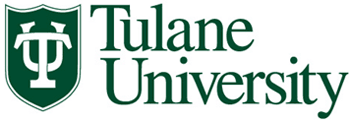Tulane University has the following experts available to discuss the implications of the draft Supreme Court decision overturning Roe v. Wade.
LEGAL IMPACTS
Stephen Griffin, the W.R. Irby Chair and Rutledge C. Clement Jr. Professor in Constitutional Law, is an expert in constitutional theory and history and can speak to:
- What the ruling means for Louisiana and other states that have a “trigger” law, immediately making abortion illegal once the ruling is overturned;
- How the ruling opens the door to state regulation of pregnancy in general and contraception;
- How unusual the ruling would be in terms of overruling precedent;
- What this means for the right to privacy and other protections, including gay rights and same-sex marriage.
Keith Werhan, a professor emeritus, is a constitutional law expert and former attorney for the U.S. Department of Justice who can speak to:
- The process involved in bringing an opinion draft to an official ruling;
- The history of SCOTUS opinion drafts being leaked to the media;
- How unusual the ruling would be in terms of overruling precedent.
David Meyer, the dean of Tulane Law School and Mitchell Franklin Professor of Law, is a constitutional law and family law expert. He also clerked at the Supreme Court for Justice Byron White. He can speak to:
- The draft opinion and constitutional privacy;
- Aspects of SCOTUS procedures and the unusual aspect of a leak;
- How the ruling could change family law;
- Unintended consequences of the ruling with regards to women, and the right of protected classes.
Law professor Joel Friedman, an expert in labor and employment discrimination law, can speak about:
- Impact on companies’ health coverage policies. There are laws that prevent companies from discriminating on any pregnancy-related medical coverage. How would the court rule if a company provides full health coverage except for coverage for abortion?
- The draft’s discussion of enumerated rights and how the shift could impact other rights like the access to contraception and protections for same-sex marriage.
Law professor Amy Gadja, an expert in freedom of the press and privacy, is the author of Seek and Hide: The Tangled History of the Right to Privacy. She can speak about the nature of the leak and:
- The history of leaks at the United States Supreme Court;
- Leaked opinions go all the way back to the 1800s when journalists and judges were especially chummy;
- The impact on media coverage of the high court.
IMPACT ON SOCIAL WORK
Margaret Mary Downey, assistant professor of social work, is an expert in health disparities and the role frontline health workers play in responding to racial and economic reproductive and maternal health inequities. She can speak about:
- How the ruling will affect social workers and their clients;
- Abortion as a class/economic justice issue and social workers’ role in both struggles;
- Dual histories of social work as both supporting abortion and gatekeeping/restricting access;
- Reproductive justice versus reproductive rights.
HISTORY/SOCIAL IMPACT
Karissa Haugeberg, associate professor of history, and author of Women against Abortion: Inside the Largest Moral Reform Movement of the Twentieth Century, can discuss:
- What this means in the context of the contemporary U.S. anti-abortion movement;
- How the ruling will shape the future of pro-life and pro-choice political landscape;
- What’s next — national law to ban abortion? Will the pro-life movement take aim at contraception next?
- Reproductive rights before Roe.
Andrea Boyles, an associate professor of sociology and African studies, is an expert on race and social justice. Boyles, a delegate to the U.N. Economic and Social Council and the Commission on the Status of Women and, can speak to:
- The impact of the expected ruling on Black women, women of color and the poor;
- How the ruling will especially impact Black women as leaders of the progressive movement and whose communities are already reeling from the COVID-19 pandemic;
- Ending the filibuster and the correlation of the decision with the rollback of voting rights and disenfranchisement happening simultaneously;
- What the ruling means nationally in terms of other civil and human rights threatened with rollbacks.
- International implications and the United States’ reputation as human rights leader.
